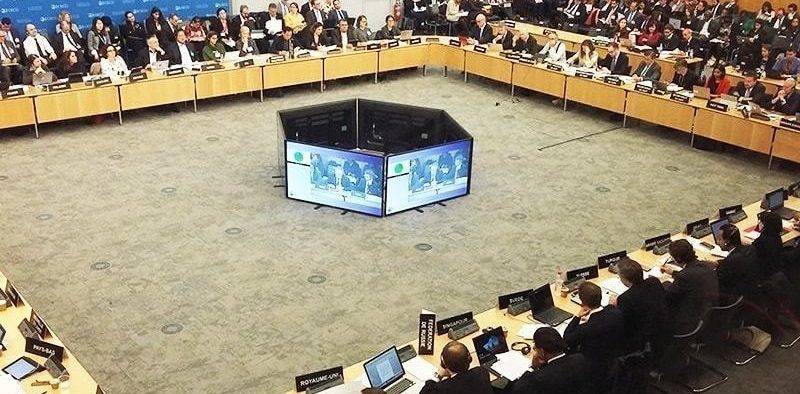
Pakistan has survived being added to the Financial Action Task Force but has been urged to complete its plan to combat terror financing and money laundering before February 2020. Pakistan has been given a four-month lifeline, and the country's failure to take the required steps to significantly counter terror financing and money laundering would result in action against it by the global watchdog. In an article in Dawn published on Tuesday, author Arifa Noor has elaborated on a report by the Asia Pacific Group, an associate member of the FATF, that details the progress Pakistan has to make to combat money laundering and terror financing. Media reports on the FATF decision have largely ignored the details.
The APG is an inter-governmental organisation that reviews members’ adherence to international standards against money laundering and terror financing.
The monitoring body aims to commit to international standards pertaining to, amongst others, money laundering and terror financing according to the recommendations of the Financial Action Task Force.
The recent report by APG was compiled by experts who had visited the country in the past two weeks. It details the steps Pakistan has to take to effectively combat money laundering and terror financing.
Firstly, the report observes that there exists a lack of both intra-provincial and inter-provincial coordination among the counter-terrorism departments (CTD) of each province. It also adds that national organisations like the Federal Investigation Agency do not coordinate with provincial CTDs.
Moreover, the report also points out that there exists a variation in the capacity of CTDs across the provinces. It adds that except for Punjab, provinces hardly focus on the financial aspects of terrorism and only investigate the security aspects of terror acts.
Furthermore, the report states that law-enforcement agencies lack the ability to differentiate between terror acts and terrorism financing, adding that limited efforts are made to investigate the sources of funding for terror acts. This is evident from the fact that of the suspicious transaction reports analysed by the Financial Monitoring Unit (a body for monitoring suspicious transactions generated by banks and other institutes) only 5.5 percent were forwarded to relevant authorities as pertaining to terror financing, while about 32 percent transactions were suspected to be due to tax evasion and corruption.
The report also underscored the lack of capacity of law enforcement agencies when it came to prosecution and conviction in money laundering cases. According to figures, the FIA, Anti-narcotics Force, Federal Board of Revenue, and National Accountability Bureau have only ensured one conviction out of their combined 161 prosecutions.
When it comes to terror-financing, there have been 58 convictions out of the registered 228 terror-financing cases in five years.
The report also highlighted the lack of awareness about terror financing and money laundering among non-banking institutions like currency exchanges, insurance firms and those businesses and professions pertaining to real estate, metals and minerals. Most of the suspected transaction alerts are filed by commercial banks.
Finally, the report also talks about how there is an absence of laws and capacity to monitor non-profit organisations and charities.
The APG is an inter-governmental organisation that reviews members’ adherence to international standards against money laundering and terror financing.
The monitoring body aims to commit to international standards pertaining to, amongst others, money laundering and terror financing according to the recommendations of the Financial Action Task Force.
The recent report by APG was compiled by experts who had visited the country in the past two weeks. It details the steps Pakistan has to take to effectively combat money laundering and terror financing.
Firstly, the report observes that there exists a lack of both intra-provincial and inter-provincial coordination among the counter-terrorism departments (CTD) of each province. It also adds that national organisations like the Federal Investigation Agency do not coordinate with provincial CTDs.
Moreover, the report also points out that there exists a variation in the capacity of CTDs across the provinces. It adds that except for Punjab, provinces hardly focus on the financial aspects of terrorism and only investigate the security aspects of terror acts.
Furthermore, the report states that law-enforcement agencies lack the ability to differentiate between terror acts and terrorism financing, adding that limited efforts are made to investigate the sources of funding for terror acts. This is evident from the fact that of the suspicious transaction reports analysed by the Financial Monitoring Unit (a body for monitoring suspicious transactions generated by banks and other institutes) only 5.5 percent were forwarded to relevant authorities as pertaining to terror financing, while about 32 percent transactions were suspected to be due to tax evasion and corruption.
The report also underscored the lack of capacity of law enforcement agencies when it came to prosecution and conviction in money laundering cases. According to figures, the FIA, Anti-narcotics Force, Federal Board of Revenue, and National Accountability Bureau have only ensured one conviction out of their combined 161 prosecutions.
When it comes to terror-financing, there have been 58 convictions out of the registered 228 terror-financing cases in five years.
The report also highlighted the lack of awareness about terror financing and money laundering among non-banking institutions like currency exchanges, insurance firms and those businesses and professions pertaining to real estate, metals and minerals. Most of the suspected transaction alerts are filed by commercial banks.
Finally, the report also talks about how there is an absence of laws and capacity to monitor non-profit organisations and charities.
